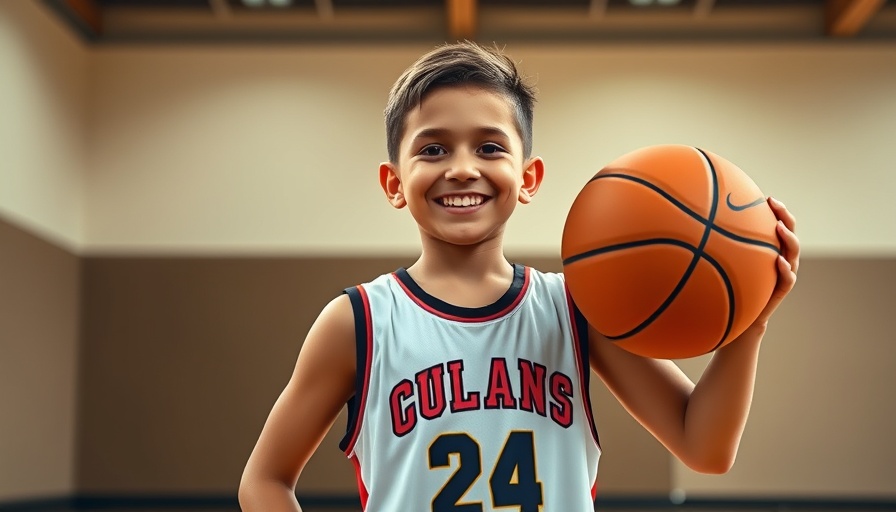
Gun Violence Strikes the Innocent: A Growing Concern
On a seemingly ordinary evening in Houston, young children engaged in what should have been a joyous pastime—playing basketball. Tragically, that night took a dark turn for Cynthia Vasquez and her family when her 11-year-old son was shot in a drive-by incident while enjoying time outdoors with his brother. This disturbing event raises alarm bells about the increase in gun violence affecting innocent lives, particularly in communities that are supposed to be safe.
Understanding the Impact of Gun Violence on Families
As Cynthia reflects on the terrifying experience, she echoes a sentiment more and more families are feeling: "Nobody is safe." Her fear and confusion stem from the realization that her family, like many others, is vulnerable in their own neighborhoods. Research indicates that children exposed to gun violence face not only physical risks but also long-lasting psychological trauma. This incident highlights the urgent need for comprehensive discussions about community safety and gun control policies.
Why Does This Happen? The Question Echoes for Many
In interviews, Vasquez framed a poignant question that haunts many: “Why would someone do that to my family?” This rhetorical inquiry reflects a broader societal issue where violent actions seem increasingly senseless. Understanding the motivations behind such violence is complex; however, experts suggest that factors like socioeconomic disparity, mental health challenges, and gang-related activities can contribute to these tragic occurrences. As HOUSTON grapples with the aftermath, there is a call for dialogues on preventive measures.
Community Responses: Strengthening the Bonds
In the wake of such violence, communities often come together to restore a sense of safety and unity. Local leaders and activists are pushing for programs that foster engagement among youth, providing them with alternatives to violence. By promoting constructive activities and creating more recreational spaces, communities can offer children safer outlets for their energies. This collective action not only aids emotional recovery for families like the Vasquezs but also helps prevent further incidents of violence.
The Role of Policy Makers: A Call for Action
The response from local governance plays a vital part in addressing the rise of gun violence. Advocacy for stricter gun control laws has become a rallying point for concerned citizens. Community leaders argue that legislators must prioritize public safety over partisan interests, ensuring that laws prevent firearms from easily falling into the wrong hands. Stronger regulations could help decrease the number of tragic incidents, protecting families from the perpetual threat of violence.
Personal Narratives: Finding Strength Through Adversity
Cynthia Vasquez’s story is a painful reminder of the cost of gun violence. As her son remains hospitalized, she has demonstrated immense resilience, drawing strength from the support of her community and friends. Stories of families like hers are essential; they humanize the statistics and demonstrate the urgent need for systemic change. As others step forward to share their narratives, we see a clearer picture of the widespread impact gun violence has on families across the nation.
What Can You Do? Engaging with Your Community
For readers feeling overwhelmed by this issue, consider how you can get involved. Joining local organizations that advocate for peace and gun-safety measures can be a profound way to contribute. Attending community meetings, supporting local youth programs, or even engaging in discussions about gun control can foster collective strength and proactive change. Each voice matters in this fight against violence.
Cynthia Vasquez's heartbreaking yet brave account sheds light on the critical need for action against gun violence. We can all play a role; let’s ensure that no family experiences similar tragedies. The first step is awareness followed by action—be it personal advocacy or community involvement.
 Add Element
Add Element  Add Row
Add Row 



Write A Comment